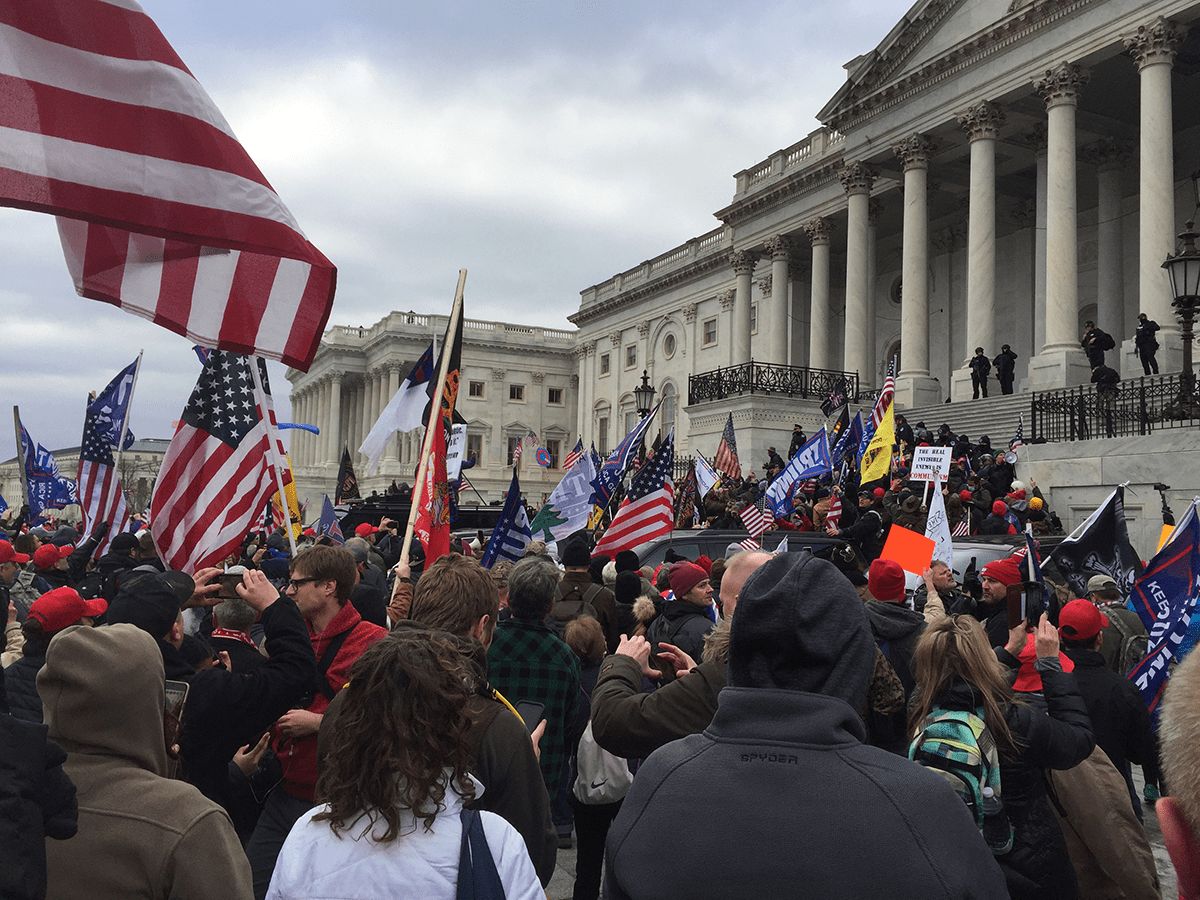October 18, 2023
Attorneys Failing Us as to the Rule of Law: ‘The Big Lie’

Attorneys take an oath, with some variation, to “. . . support [protect, or defend] the constitution of the United States and the constitution of (their home state).” It is an oath very similar to the one taken by our federal officials, including the President of the United States and members of Congress. It is an affirmative oath which calls one to action and places an affirmative duty on the oath-taker. As the oath makes clear, our Constitution is the very bedrock of our rule of law and worth protecting.
In a recent article in The Atlantic, Professor Laurence Tribe and Justice J. Michael Luttig make the case that the Constitution prohibits Trump from ever being president again, based on Trump’s efforts to overturn the 2020 election – the ‘Big Lie’ that Trump won the 2020 election when in fact he did not – which resulted in the January 6th attack on our Capitol. To reach this conclusion they point out that Section 3 of the post-Civil War Fourteenth Amendment “automatically excludes from future office and position of power in the United States government, [as well as state and local governments], any person who has taken an oath to support and defend our Constitution.” This would include our aforementioned public officials as well as attorneys. Tribe and Luttig point out conservative legal scholars, Professors William Baude and Michael Stokes Paulsen in The Sweep and Force of Section Three, provide evidence that supports this understanding of the Fourteenth Amendment making this a non-partisan issue.
Since the attack on our Capitol, political leaders, many of whom are lawyers, continue to spread and amplify the ‘Big Lie’ not as valid political dissent against some government policy, which would be protected by ‘freedom of speech,’ but as cover for those who engaged in criminal acts during the January 6th insurrection and as an outright attack on the fundamental bases of our constitutional government whether it is the peaceful transfer of power or the “lawful outcome of a presidential election.”
As Baude and Paulsen point out, “it is no defense that an individual might claim that his or her conduct does not constitute having engaged in or supported ‘insurrection’ or ‘rebellion’ because . . . Trump in fact won the election[.] The problem is that the premise is simply false. Decisionmakers can and should act on the well settled factual understanding that Joe Biden won, and Donald Trump lost, the election of 2020.”
The public record is clear. There are political leaders who are pushing lies which attack the very core of our Constitutional Government. “All who are committed to the Constitution should take note and say so,” as Baude and Paulsen urge.
Indeed, the legal profession, all Americans really, should pay heed to the corrosive effects of the actions and words leading up to January 6th and since, which destabilize not only our democracy but our government by people who swore to “protect the Constitution.” What is worse, these same people have moved from baselessly claiming an election was stolen to now attacking the justice system which is charged with bringing them to justice with no basis in fact or evidence to do so.
Many Americans do not know that attorneys are self-regulated through individual state disciplinary commissions. If an attorney breaks one of numerous ethical rules, they can be censured or suspended or disbarred by other attorneys. While there already is scholarly debate and work on lawyer lies and political speech, the attorney’s duty to democracy, and the attorney’s role in the subversion and protection of the Constitution, one need not look at ethical rules when we have the Constitution, the attorney’s oath of office, and the general character and fitness to practice law to consider. If attorneys, these politicians appear to lack the “character and fitness” to be representatives of the profession they are a part of as their conduct goes against the very oath to support, defend, and protect the Constitution. Rather than spreading the ‘Big Lie’ or helping spread the ‘Big Lie,’ or silently standing by while others spread the ‘Big Lie,’ attorneys should be correcting the record every chance they get. Otherwise, those ‘Big Lie’ attorneys prop up the ‘Big Lie’ simply by their societal station of being an attorney.
As Baude and Stokes note, Lincoln once said, a “man who stands by and says nothing, when the peril of his government is discussed, cannot be misunderstood. If not hindered, he is sure to help the enemy.”
To be blunt, it's time we attorneys as a profession stop burying our heads in the sand. This is not a case of a politician embellishing or characterizing another politician as “soft on crime” or “in the pocket of special interest,” or a case of ordinary political dissent. It is an extraordinary direct attack on our democracy through lies. Attorneys who violate their oaths should be held to account professionally whether censured, suspended, or outright disbarred. The legal and political processes will sort out whether politician lawyers should hold political office. However, we attorneys should do everything we can to protect the integrity of our profession and the very foundation of our Constitutional government.
Jim Saranteas is a practicing attorney with over twenty years of experience at the trial and appellate levels in civil litigation. His accomplishments include successful arguments and decisions before, among others, the Illinois Supreme Court. In 2012, the Loyola University Chicago School of Law’s Board of Governors chose him for its prestigious St. Bellarmine Award in recognition for his distinguished contributions to the legal community. He was both an adjunct professor and moot court coach in appellate advocacy for Loyola Law. This year, Saranteas is assisting Duke Law’s Moot Court Board as a volunteer appellate advocacy coach. Saranteas received his J.D. from the Loyola University Chicago School of Law, and his B.A. in Economics & Business Administration from Knox College.




